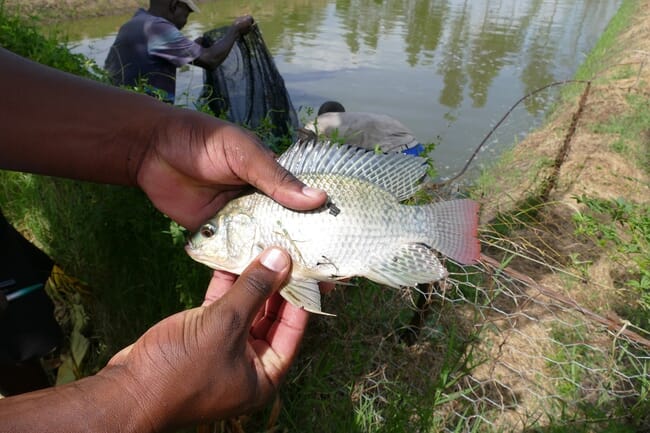
The new agreement aims to act as a catalyst for the development of competitive, gender equitable and sustainable commercial aquaculture and fisheries management in the Lake Victoria Basin. Research will focus on improving sustainability and biosecurity of aquaculture production systems, management of aquatic genetic resources and access to commercial networks for aquaculture-related businesses, as well as supporting skills development in local workers for aquaculture-related businesses.
Bordered by Kenya, Tanzania and Uganda, the world’s second largest freshwater lake directly supports food, nutrition and economic security for around 2 million people. Small fish species, a major part of the fish catch from the lake, are also highly significant for nutrition throughout the region. However, over the last decade commercial fish stocks have plummeted due to overfishing, invasive species, pollution, and changing climatic conditions, among other factors. The catch and biomass of commercial species in the lake, in particular Nile perch and Nile tilapia, have declined, contributing to reductions in per capita fish consumption in the region. In response, the East African Community (EAC) – a regional intergovernmental organization – is making efforts to improve management of aquatic resources, and promote sustainable aquaculture, to create new jobs and boost livelihoods.
Research aimed at boosting aquatic food availability through the development of environmentally-friendly and equitable aquaculture models will be undertaken through the EU-funded EAC project for promoting aquaculture in the Lake Victoria Basin (TRUE-FISH Project). WorldFish will technically assist the LVFO – a specialised institution of the EAC – in strengthening aquatic animal health conditions, fish breeding and the zoning of Lake Victoria for the protection of biodiversity. The research generated will be used to advise on the adoption and implementation of regional and national policies, regulations and associated implementation guidelines regarding the management of aquaculture development and biodiversity and genetics. The efforts will also see the development, organization and delivery of context-specific aquaculture production and business training for local workers, especially women and youth.
“The agreement provides key scientific knowledge to assist countries in the Lake Victoria region develop policies and management strategies for aquatic genetic resources in this regionally and globally important aquatic ecosystem,” said Dr Mike Phillips, director of aquaculture and fisheries science, for the CGIAR Research Program on Fish Agri-Food Systems (FISH) at WorldFish in a press release.
“WorldFish will assist LVFO members to identify and manage limiting factors and sustainability risks for the development of competitive and sustainable commercial aquaculture in the Lake Victoria region, contributing to sustaining a diverse and productive natural fishery and the development of new opportunities for food, income and jobs in a sustainably managed aquaculture industry,” he added.
Dr Shigalla Mahongo, Lake Victoria Fisheries Organization (LVFO) executive secretary, said: “The partnership between WorldFish and LVFO through this agreement is expected to play a vital role in delivering a much-needed impact in the aquaculture sub sector to meet the rising demand for fish protein due to increase in population growth, coupled with dwindling capture fisheries. This partnership will therefore ensure a sustained food and nutrition security to the EAC citizens by enhancing the availability of quality fish seeds to farmers and hence increasing their productivity to meet the growing demand. “
“Through WorldFish’s research and capacity development, the aquaculture sub-sector in the EAC will benefit, especially on building capacity to ensure the effective utilisation of quality fish genetics for increased productivity and biodiversity protection. The capacity building initiative will range from enhanced capacity in species identification, breeding and administration of the regulatory framework to a system for assessing and certifying private hatcheries.”



